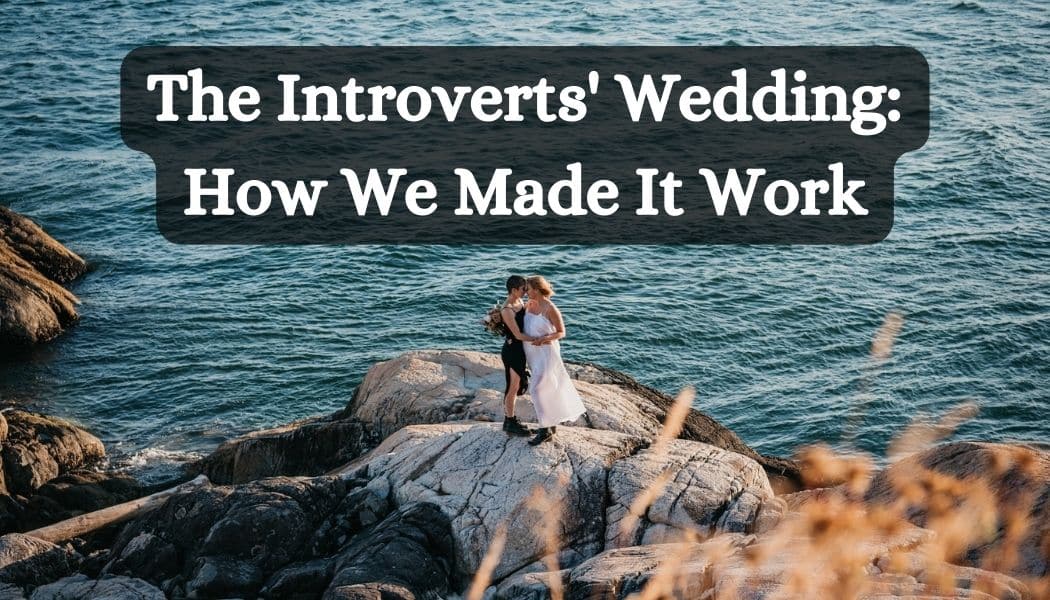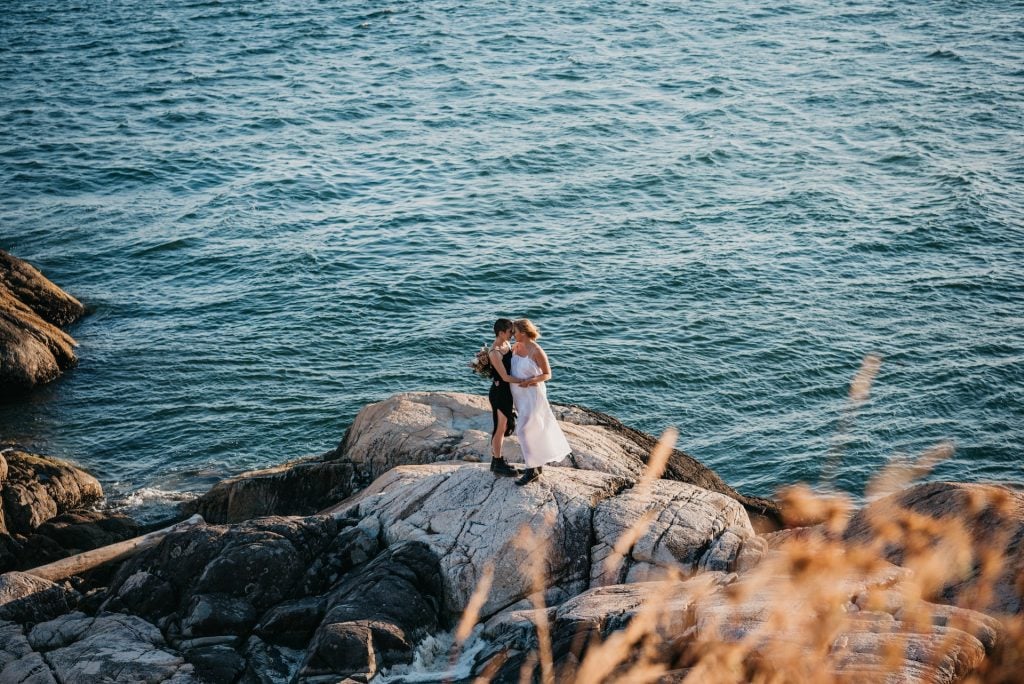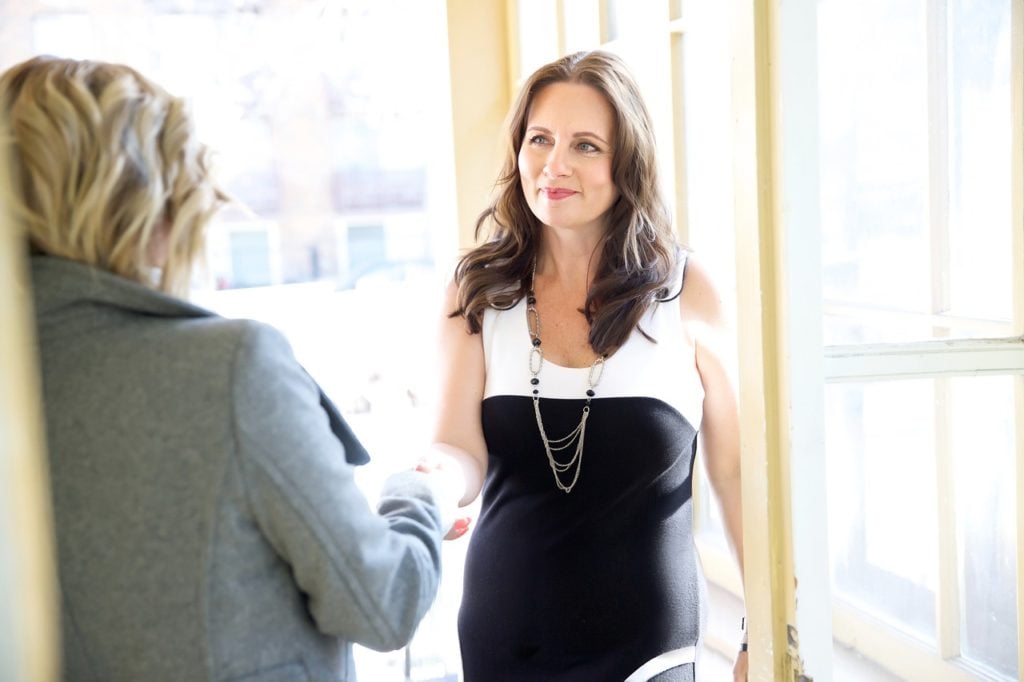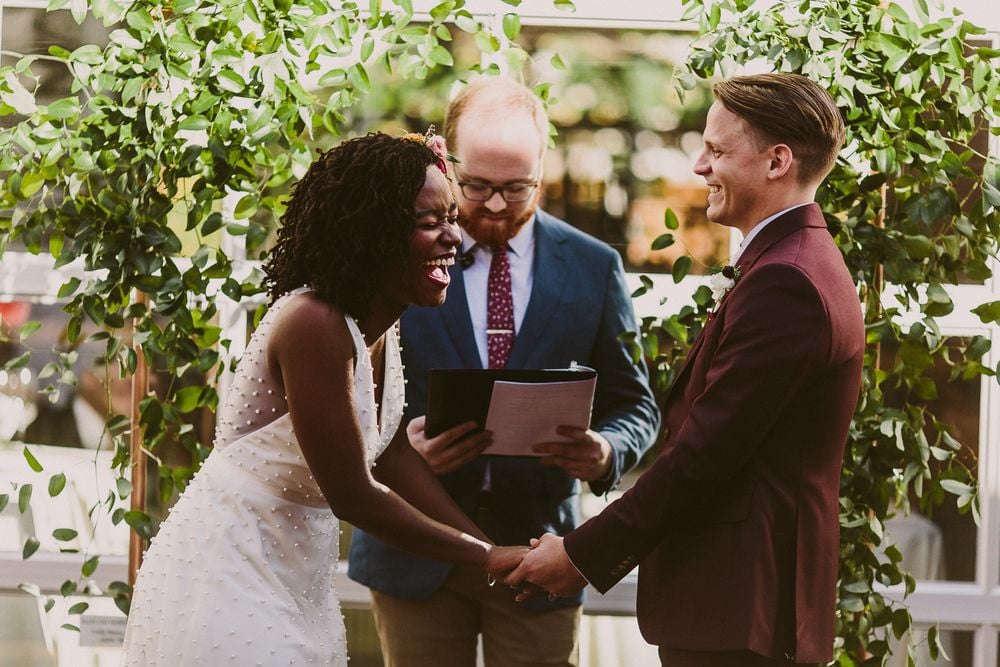
Table of Contents
Key Takeaways
- Intimate Ceremony: Small guest list with immediate family and close friends.
- Elopement Elements: Private moments, such as a first look in a secluded garden.
- Online Tools: Utilized wedding websites, virtual tours, and online invitations.
- Wedding Planner: Delegated tasks to reduce stress and manage logistics.
- Delegation: Involved family in tasks like the seating chart.
- Quiet Spaces: Scheduled breaks and private areas for relaxation.
- Short Events: Brief ceremony and reception with structured activities.
- Preserving Memories: Candid photography and online guestbook.
- Self-Care: Prioritized exercise, meditation, and rest before the wedding.
- Authenticity: Planned a day true to their introverted nature.
A wedding is a big deal. In fact, it is one of the most important events that will ever take place in a person’s life. But what happens when the couple planning the wedding are self-proclaimed introverts? My partner and I enjoy a quiet and private life, and the idea of being the center of attention in a traditional wedding ceremony filled us with dread instead of joy. Nonetheless, we knew that we wanted to celebrate our marriage with the people that we love. So, here is how we made it work.
Keeping It Intimate
From the outset, we knew that a large wedding was not for us. We thrive in smaller, more intimate settings where we can connect with people on a deeper level. Rather than a grand affair with hundreds of guests, we opted for a small ceremony with only our immediate family and a handful of our closest friends.
Coming from an Italian background, explaining this decision to my parents was a challenge. Thankfully, they eventually respected our wishes and supported our decision to have a more modest celebration sans distant relatives and random acquaintances.
This decision not only reduced the social pressure, but we found it much easier to be fully present and spend quality time with each guest. When paring down the guest list, we also gained important perspective on who truly mattered to us as a couple.

Elements of Elopement
At first, my partner and I toyed with the idea of eloping. The idea of a private ceremony with just the two of us, perhaps on a mountaintop or a secluded beach, was incredibly appealing. It seemed like the ultimate way to avoid social pressures and focus solely on our love for each other. However, as we thought about it more, we realized that we still wanted our family and friends to be a part of our special celebration.
While we ultimately decided against eloping, the concept influenced our planning. We incorporated elements of elopement into our wedding by creating moments of privacy and intimacy throughout the day. For instance, we had a private first look before the ceremony, where we held hands and took a walk in a secluded garden. This allowed us to share a deeply personal moment away from the eyes of our guests.
Embracing Online Tools
The digital age has brought many conveniences, and wedding planning is no exception. We thoroughly appreciated the ability to use online tools for much of the planning process. From creating a wedding website keep our guests informed to virtual tours of venues, technology allowed us to minimize in-person interactions while still ensuring everything was on track.
We also used online platforms to design our invitations and manage the guest list. This gave us the freedom to work on these tasks at our own pace in the comfort of our home and allowed us to avoid receiving tons of RSVPs and congratulatory phone calls. Text message invitations were a godsend, especially for our older relatives who are not tech-savvy, and it was a breeze to send a mass invite to everyone at once.
The Power of a Wedding Planner
Unfortunately, a large part of the wedding planning had to be dealt with in person. The thought of coordinating with multiple vendors and managing the logistics on the wedding day was just overwhelming.
One of the best decisions I made was to hire a wedding planner. Our wedding planner, Sarah, handled the interactions with vendors on our behalf. She took the time to understand our vision and preferences, and allowed us to remain in the background and avoid the stressful back-and-forth that comes with planning a wedding.
Having Sarah as the sole point of contact allowed me to focus on the aspects of the wedding that I was passionate about, like choosing the flowers and writing our vows. Her expertise and calm demeanor were crucial to keeping me sane at lot of the time.

Learning to Delegate
The importance of delegation was another key lesson I learned through this process. This was a really hard lesson because I am so used to handling every single task myself instead of asking someone for help.
While Sarah took care of most of the behind-the-scenes work, there were still some tasks that needed our personal touch, like the seating chart. But, after tearing my hair out trying to sit the right people together, I finally let go and asked my sister for help. I found that she was more than happy to lend a hand and her input ended up being incredibly valuable.
Creating Quiet Spaces
On a normal day, two hours of continuous people interaction is my limit before I start feeling drained. The idea of having to be “on” for an entire wedding day was terrifying. I knew that we would need moments of solitude to recharge, so we ensured that our venue had quiet spaces where we could retreat if needed.
We requested for the venue to set up a private garden area for just the two of us, and our wedding planner made sure that we had regular breaks scheduled throughout the day to rest and regroup. These quiet moments ended up being crucial. When the energy felt overwhelming, we would slip away for a few minutes to catch our breath and stay grounded.
Short and Sweet
Another strategy that worked well for us was keeping each event short and sweet. Our church wedding ceremony itself was only 20 minutes long as we intentionally aimed to strike a balance between a meaningful celebration and an event that did not feel drawn out or excessively dramatic. We kept to the bare essentials like the vows and ring exchange without adding unnecessary flourishes.
Similarly, our reception was only around 3 hours in length, which included time for dinner and some dancing and mingling. We did away with the individual toasts, which we find to be long and awkward, and chose to make a group toast together with all the guests. We had a fixed event ending time and asked the band to play a final song to signal when it was time to wrap up the night.

Structured Activities
In addition to intentionally shortening each event, we (or, rather, Sarah) also planned some structured activities that would occupy our guests without demanding a lot of involvement on our part.
A photo booth with fun props was a hit with our guests, who could amuse themselves by taking silly pictures together. We also set up a wine-tasting station with our friend, a bona fide sommelier, who regaled our guests with his knowledge of the wine they sampled. Instead of a first dance with everyone staring at us, we opened the dance floor for everyone to join in.
Preserving Memories
As someone who tends to be a bit camera-shy, I was initially not too excited about the idea of having a professional photographer at our wedding. However, we did end up hiring someone, and I’m so glad we did. After looking at several options, we hired a talented photographer who specialized in candid photography. We asked him to focus on capturing genuine emotions and interactions rather than staged poses.
Additionally, we set up an online guestbook and shared photo album so that guests could upload their own photos and notes from the day. This allowed us to see the wedding from different perspectives and appreciate moments that we missed. Many of those photographs were so special: the quick glimpse of my mom wiping a tear during the ceremony or our little ring bearer quietly napping in a corner.
Self-Care and Preparation
In the days leading up to the wedding, my stress levels were peaking. To prevent myself from completely burning out, I made sure to prioritize self-care. I blocked off time to exercise and meditate and did plenty of meal prep a week before so that we wouldn’t have to worry about cooking. Additionally, we wrote out a detailed timeline for the wedding day to reduce any last-minute surprises or rushing around.
My fiancé and I made a conscious choice not to see anyone the day before the wedding and to take the entire day to relax and remind ourselves of why we were doing this in the first place. We made sure to get plenty of rest the night before and enjoyed a quiet and slow breakfast before getting ready for the wedding. This prep time ensured that we were mentally and emotionally ready for the day ahead.

Final Reflections
Our wedding day was still a whirlwind of emotions and activity—but in a good way. At the end of the night, when I lay next to my now-husband, I felt a profound sense of gratitude mingled with relief that we had pulled it off. We looked at each other, and he said, “Can you imagine if we’d had a big wedding?”
For any introverted person planning a wedding, my advice is to embrace your preferences and plan a day that feels authentic to you. Whether it is keeping the guest list short, hiring a planner, or incorporating downtime, there are many ways to create a wedding that is both beautiful and comfortable for you.
There will be times when you have to decide what is conventionally acceptable and what is important—and sometimes make a choice between one or the other. But your wedding day is yours and your partner’s alone, and you must be true to who you are. So, here’s a toast to the small big days and the quiet wedding parties!












